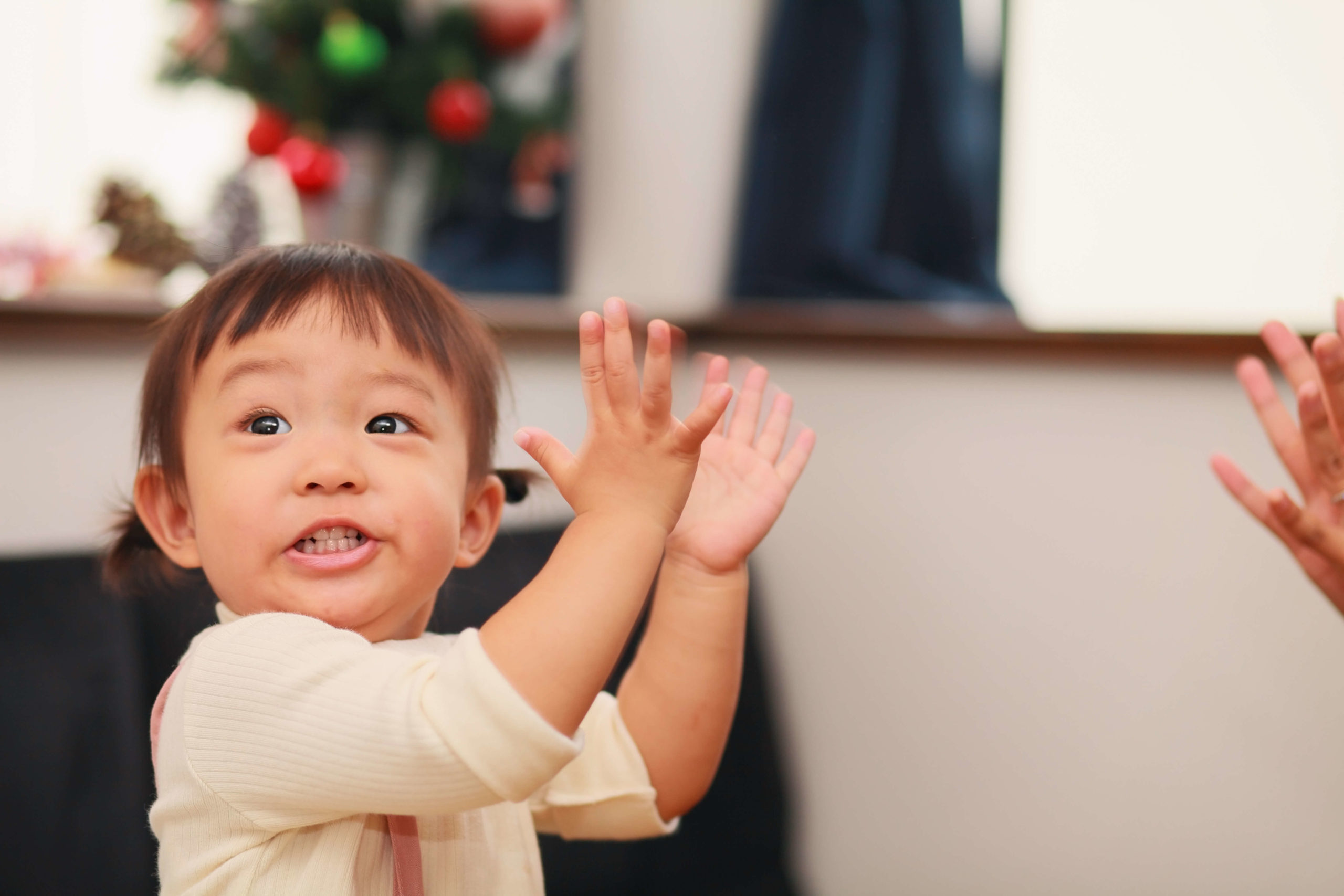Developmental Communication Milestone Series: 12 Months
 What does communication at 12 months of age look like? At 12 months babies become active participants in their environments. They begin participating in familiar routines and social games adults play with them. They continue to learn language by hearing the same words/phrases paired with familiar activities, repetition of actions and words, having adults explain what is happening, reading the same books multiple times, etc. Babies also start making consistent sounds at this age and start to use these sounds or “word approximations,” with meaning and understanding. They also create babbling sounds that go on and on as if they are talking. Babies also continue to express themselves consistently using facial expressions and gestures at this age.
What does communication at 12 months of age look like? At 12 months babies become active participants in their environments. They begin participating in familiar routines and social games adults play with them. They continue to learn language by hearing the same words/phrases paired with familiar activities, repetition of actions and words, having adults explain what is happening, reading the same books multiple times, etc. Babies also start making consistent sounds at this age and start to use these sounds or “word approximations,” with meaning and understanding. They also create babbling sounds that go on and on as if they are talking. Babies also continue to express themselves consistently using facial expressions and gestures at this age.
What communication should babies have by 12 months?
- Participate in clapping when playing patty-cake
- Wave hi/bye when shown how people greet each other
- Copy simple gestures when they see someone familiar doing them
- Follow directions such as, “Give me your shoe.”
- Look or move toward a person calling their name
- Point to a cookie on their plate when asked, “Where’s your cookie?”
- Giggle before you even finish “This Little Piggy” because they anticipate the tickling part at the end
- Put a block in a cup and then take it out when asked, “Where is the block?”
Expressively babies should be:
- Babbling consistently with strands that sound like adult speech
- Reach arms over head after finishing a snack to indicate “all done”
- Shake their head and turn away when you try to keep feeding them bananas after they have been pointing to Cheerios
- Repeat syllables with language like inflection when pointing to an out of reach toy
- Using meaningful word approximations such as “ba-ba” for bottle or “ma-ma” when they see their mommy
Your baby may need additional support if they:
- Do not look toward the person whose name is being called when asked, “Where’s mama?”
- Do not respond to waving hi/bye
- Look at your face rather than up in the sky when you excitedly say, “Hear the airplane?”
- Make only a few babbles and not many repetitive sounds
- Show little interest in communicating wants and needs or making choices when they are offered
- Do not initiate social games such as peek-a-boo
- Express anger/frustration when adults do not understand what they are trying to communicate
Check out 18 Month Communication Milestones to learn what your child should develop next. If you have questions or concerns about your toddler’s speech development, call MOSAIC Rehabilitation at (406) 388-4988. We offer free 15 minutes screens and are happy to answer any questions you might have.
